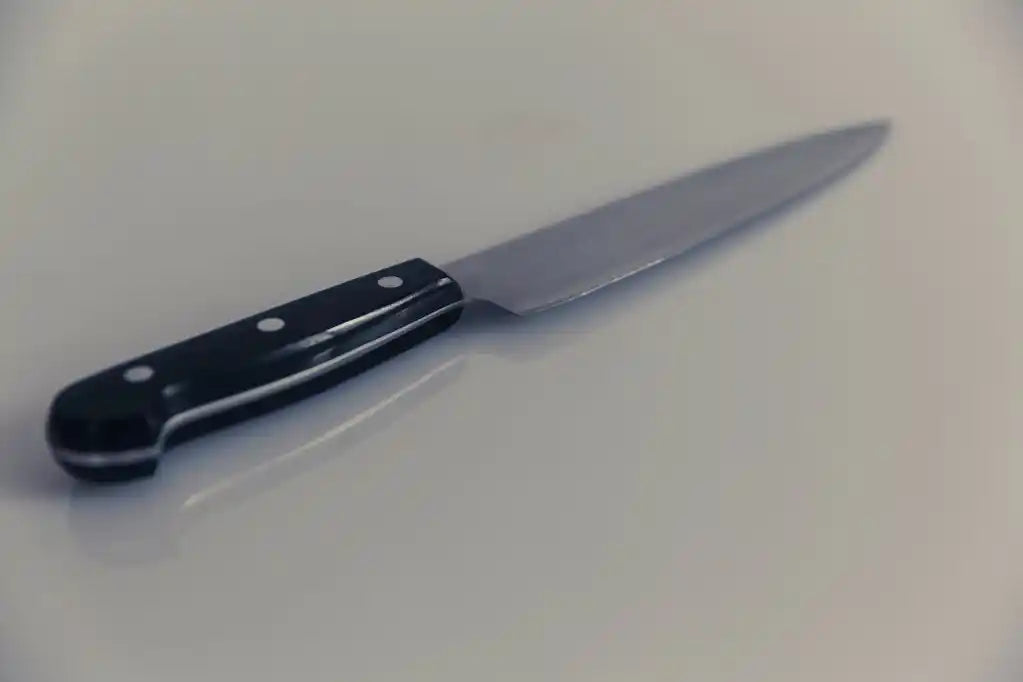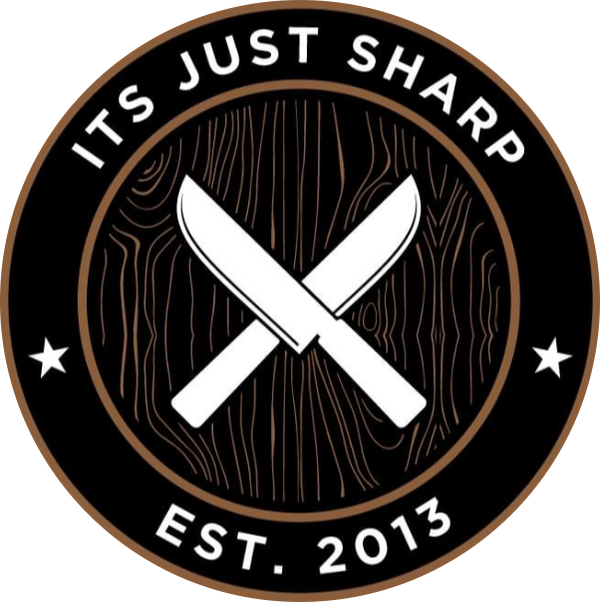
Should you consider a full tang knife?
If you read our article on EDC knives or Bow Knives you'll know we do our best to demystify all kinds of knife store lingo so that you can find the very best knife for you. So for this post I'm going to dig into the concept of full tang knives.
Here's the Under 60 Second Brief!
What does full tang on a knife mean?
Full tang knives

Ok, fully explain this I'm going to start with what full tang construction means. Simply put, if a knife is a full tang knife blade then the same metal that makes up the blade continues unbroken through the handle of the knife.
More specifically the knife tang refers to the space after a bolster or finger guard that runs the length of the handle/pommel material.
Partial tang knives

A partial tang knife would have the blade metal that runs only part of the way through the handle. This kind of construction is actually a lot more common than you would think. Partial tang knives tend to be lighter due to less metal in the knife handle.
Hidden tang knife
Hidden tang knives are a blend of partial tang knives and full tang knives. In this case, typically the tang connects all or most of the way through the knife handle however it gets smaller and tapers or becomes thin toward the end of the handle.
Is full tang better?

As with a lot of answers we give here at itsjustsharp.com, it depends on use and situation.
Mainly due to the knifes balance and weight. While a full tang knife might be heavier overall its balance will make it much less of a strain on the wrist of the user. So to dig into this a bit further I'll break this down to a few situations we typically get asked about to help you.
Survival knives

In most survival situations we would lean toward using a full tang knife blade. Normally survival knives are attached to a bag where the extra weight is felt less and doesn't create hassles.
A full tang knife would have a very clear advantage in a survival situation though. If you were to need to split some wood for a fire using just your knife, a full tang would tend to be stronger and hold up to abuse longer.
Culinary Knives

Based on our conversations with our resident chefs, a full tang chefs knife isn't a have to. As a chefs knife moves across a cutting board, the tip of the knife is typically resting on the board.
This allows the board to bear any weight difference and imbalances of the knife itself. Our chefs tended to spend more of their time concerned with the blade, how it was forged and handle material than the tang balance.
Hunting knife/ Everyday carry

The hunting knife seems to be a middle of the road answer as opposed to the first two. Of those we surveyed more attention was paid to the handle material for grip and the cutting edge than the tang. However when asked they all said that they preferred a full tang knife.
Overall Assessment
When we look at knife construction your tang selection needs will be based on your needs. For a more heavy duty tasks you will likely need more of a full tang through your knife, especially if you intend on using a ferro rod with as much force as typically applied to the knife handle.
If we had to choose a survival knife we'd only be looking for a full tang knife with a larger blade thickness and preferably a kydex sheath or a leather sheath.
We agree with Gear Patrol in their assessment. If available, we'd happily take full tang knives, but in the kitchen it's not a must.
Frequently Asked Questions
I have a fixed blade knife, does that mean its a full tang knife?
Not always. To know for sure we recommend looking up the model on the manufacturers website. There have been fixed blade knives with partial tangs or a hidden tang.
Do folding knives have a tang?
Believe it or not, some do. However they are typically very small, and don't typically provide much support to the knife except into the locking mechanism.
Is there a way to know for sure I have a full tang knife?
There is no sure fire way to know you have a full tang knife unless you made it yourself. However, here a sign that you might have a full tang.
If you can see the same piece of metal running the entire spine of the knife from tip through the pommel. This would likely occur if you have a split handle where two pieces of wood or plastic are held to the knife handle with rivets.
